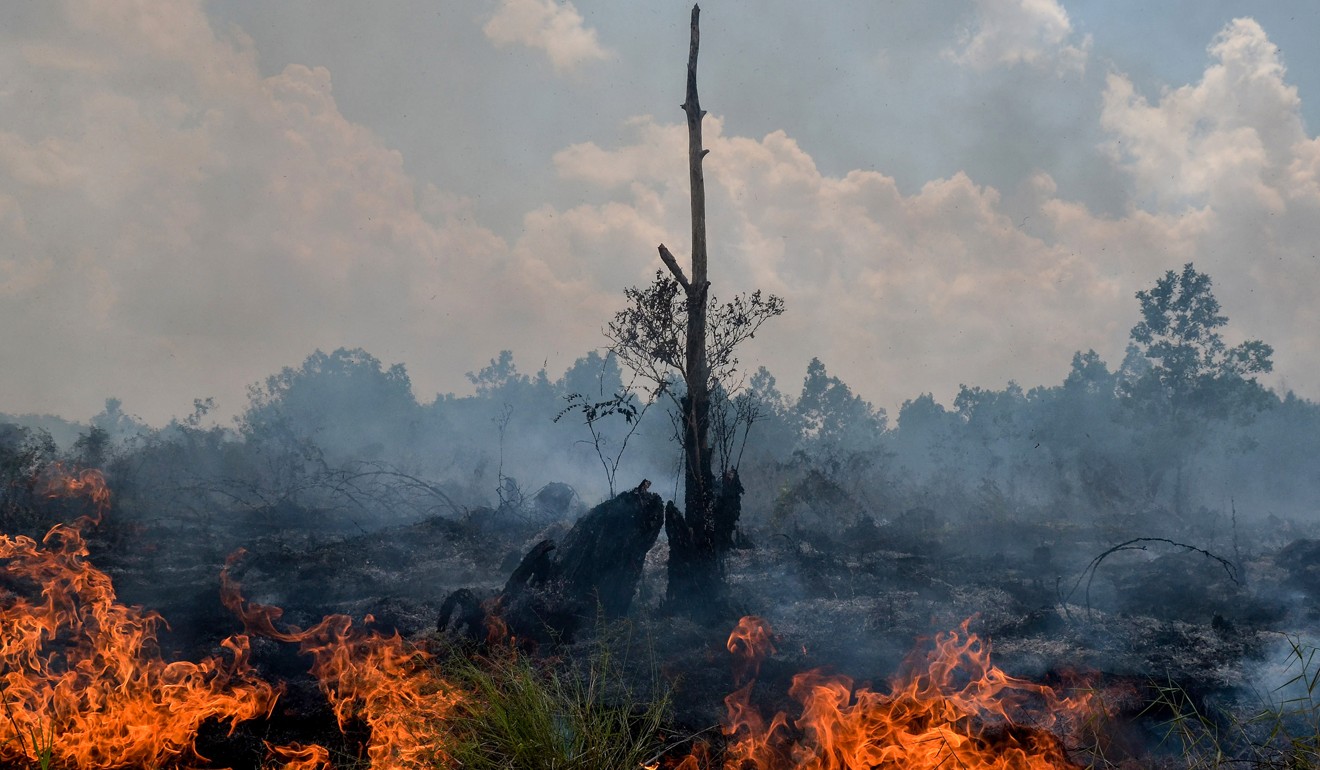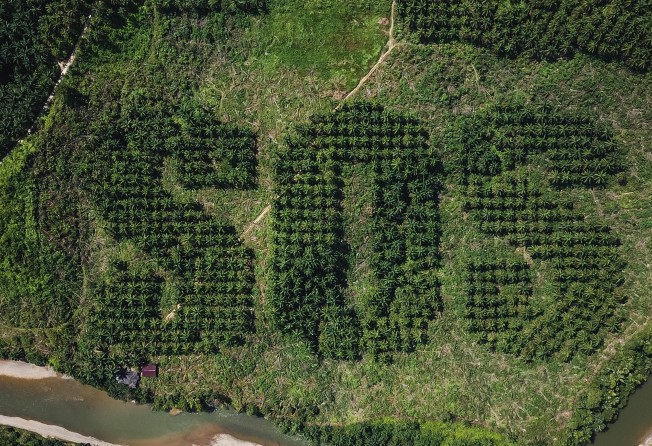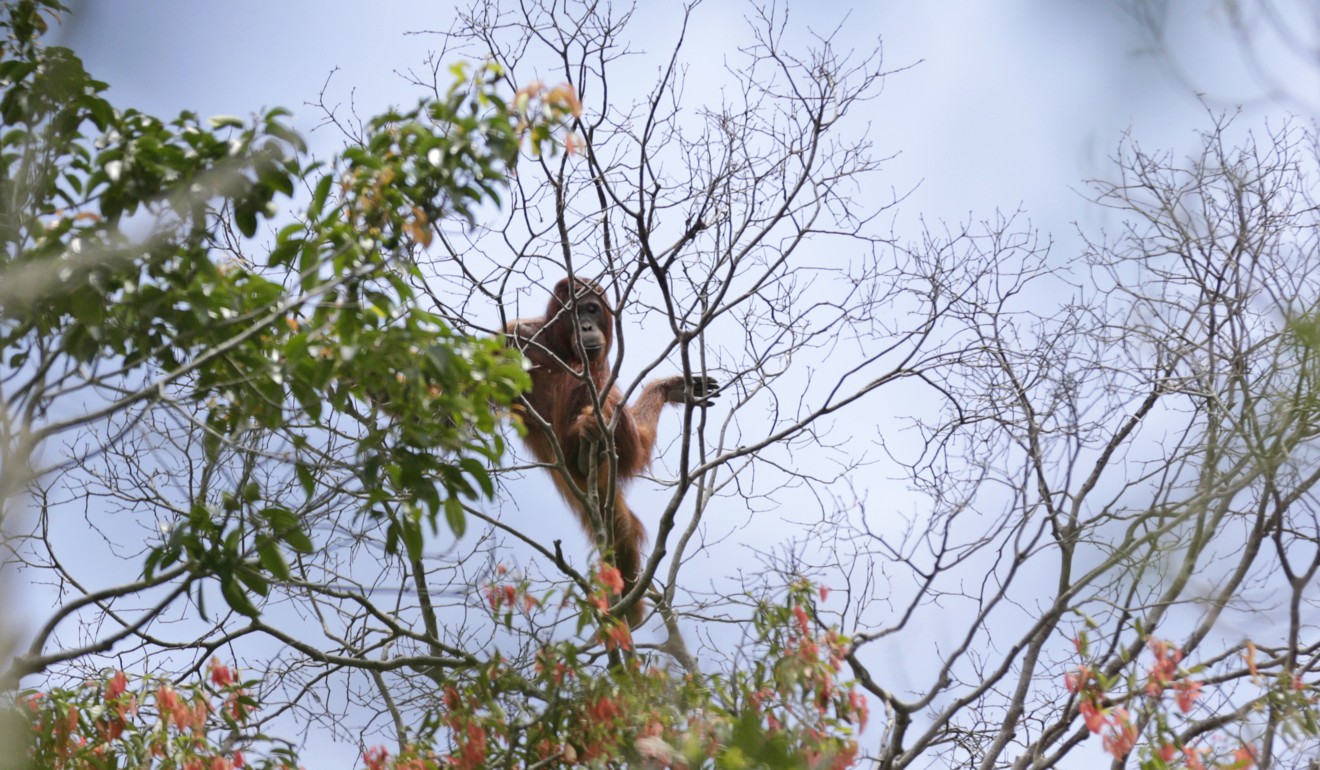
Why did this artist carve SOS into an Indonesian palm oil farm?

A Lithuanian artist has carved a giant SOS message into an Indonesian palm oil plantation to draw attention to the damage done by deforestation.
Ernest Zacharevic curated the ‘Save our Souls’ project as part of a campaign on the impact palm oil plantations have on tribal communities and endangered species such as the orangutan.
“We, as consumers, are so detached from the source of our commodities that we are no longer able to see the consequences of our daily choices,” Zacharevic said by email. “I wanted to communicate the magnitude of the problem.”

The giant SOS signal, which he completed last month, runs for about a half-kilometre inside a plantation in North Sumatra, and can be seen from the air. The land will be replanted with native tree species, he said.
Environmentalists say land-clearing for agricultural plantations in Indonesia, the world’s biggest palm oil producer, is responsible for forest destruction. Forest cover has dropped by nearly a quarter since 1990, according to World Bank data.
Zacharevic’s SOS comes amid growing pressure on corporations to adopt sustainable practises. PepsiCo and British cosmetics firm Lush have committed to ending the use of palm oil – which is found in products from soap to cereal – or ensuring their supply is ethical.
Last month, consumer goods giant Unilever said it had laid bare its palm oil supply chain to boost transparency.
Indonesia has been a focus of global efforts to rein in greenhouse gas emissions caused by the deforestation of swampy, carbon-rich peatlands to make way for plantations for industries such as palm oil, pulp and paper.
These forests are often in remote areas long inhabited by indigenous peoples, who might not have documents proving ownership or be able to contest land acquisitions in the resource-rich Southeast Asian nation.

The forests are also home to dwindling wildlife populations. There are only about 14,600 orangutans remaining in the wild in Sumatra, conservationists estimate.
The Splash and Burn campaign – a play on the slash and burn method used to clear forests for plantations – is supported by the Sumatran Orangutan Society, a charity, and Lush.
“We are all contributing to the destructive effects of unsustainable palm oil, whether it is by consuming products or supporting policies that affect the trade,” Zacharevic said.
“This project is an effort to appeal to the consciousness of a wider audience.”